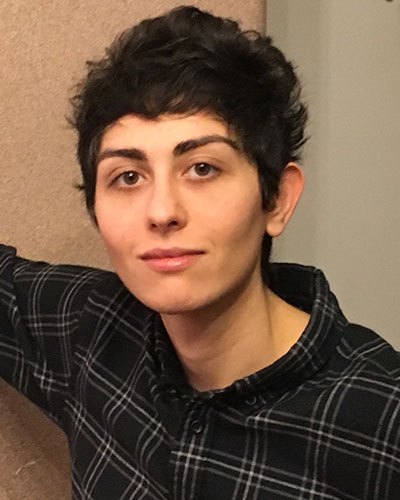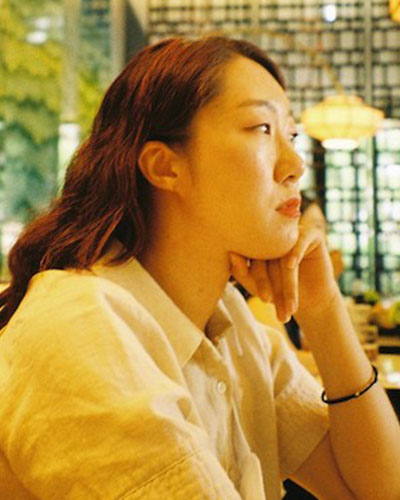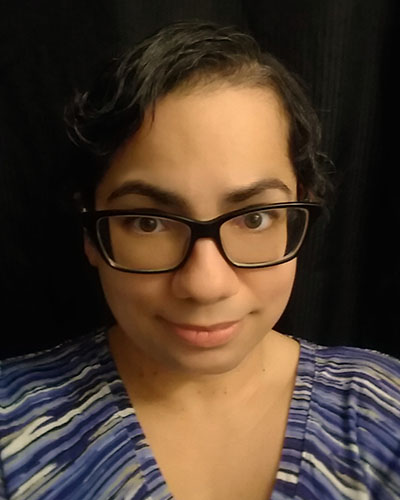For more information on BMCC’s Writing Across the Curriculum program, e-mail Holly Messitt (hmessitt@bmcc.cuny.edu) or Rifat Salam (rsalam@bmcc.cuny.edu).
Writing Across the Curriculum Coordinators

Rifat Salam is an Associate Professor of Sociology and a Deputy Chair in the Social Sciences, Human Services and Criminal Justice Department. She received her Ph.D. in Sociology from New York University.
She joined BMCC in 2005 and was introduced to Writing Across the Curriculum in her first semester at the college. Since then, she has presented conference papers on WAC pedagogy and the teaching of sociology and has developed numerous teaching workshops at the meetings of the Eastern Sociological Society and the American Sociological Association. Prof. Salam is an active member of the CUNY WAC Council and serves on the WAC Fellows Professional Development group. Her primary focus in WAC is leading WAC faculty development, developing and implementing policy and new initiatives.
Prof. Salam’s research interests include family, gender, immigration and she is the author of Negotiating Tradition, Becoming American: Family, Gender and Autonomy for Second Generation South Asians. Her current teaching project is exploring ways to incorporate contemplative practices and pedagogy into her Writing Intensive courses.

Holly Messitt has been a WAC coordinator at BMCC since 2011. She is an Associate Professor in the English department and co-editor of New America: Contemporary Literature for a New Society (Autumn House Press). In addition to her academic work, she is Yoga Alliance-certified vinyasa yoga instructor trained at Prema Yoga in Brooklyn.
(Photo courtesy of Marguerite Rivas.)

Christa Baiada is an associate professor in the English Department. A former Writing Fellow, she has been active in BMCC’s WAC program since her second year at the college and regularly teaches WI courses in addition to composition and intensive writing courses. She has been a co-coordinator of the program, working directly with the Writing Fellows, for three years. With a Pd.D. in Literature from the CUNY Graduate Center, her areas of scholarship and teaching focus on 20th and 21st Century American literature, Comparative Ethnic American Literatures, and Women’s and Gender Studies. Her current research project examines representations of mothers and mothering, in particular of breastfeeding as a maternal practice, in 21st Century American literature.
WAC Fellows

Agnieszka Anna Ficek is a PhD candidate in the art history department and an adjunct instructor at Baruch College. She holds a BVA from the University of South Australia, a BA from SUNY, and an MA from Hunter College. Her dissertation work examines Inca-themed visual, material, and literary culture in France during the long eighteenth century. She has recently published her scholarship in peer-reviewed journals; The Eighteenth Century: Theory and Interpretation and Studies of Eighteenth-Century Culture.

Shima Houshyar is an anthropology doctoral candidate at the CUNY Graduate Center, working on the politics of infrastructure, the environment, and the state in Cold War Iran.

Ja Young Jeon is PhD Candidate at The Graduate Center. She is currently working on her dissertation project, which examines how early modern playwrights used ventriloquism to think through theatricality, cross-gender impersonation, and gender relations. She has written and presented essays on cultural meanings of urban spaces, gendered closet, and revenge tragedies’ depiction of the male tongue. She is also interested in how our contemporary cross-gender, cross-racial casting of Shakespearean characters reimagines and complicates key issues of his plays. Prior to being a WAC fellow, Ja Young taught Introduction to Writing about Literature at Hunter College.

Jessica Lugo is a PhD student at the CUNY Graduate Center. Her research includes the study of classical influences in Early Modern English Drama and the means by which mythology is routinely fractured in the service of an Elizabethan/Jacobean social agenda. Her teaching interests focus on advancing diversity and inclusion in higher education, as well as promoting methods through which the humanities can become more accessible to entry-level students.

